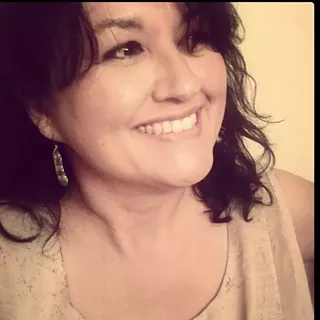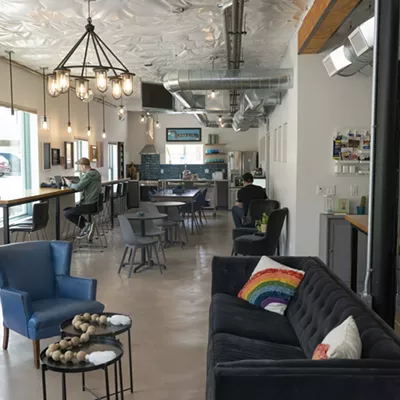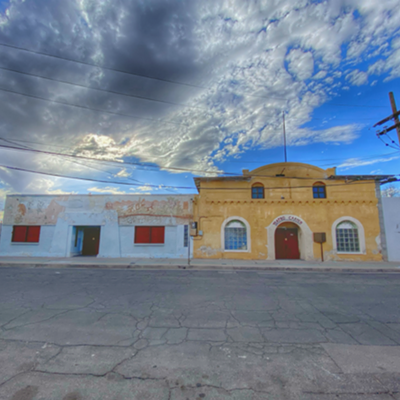Addressing homelessness and housing has been an ongoing discussion in Tucson in what sometimes seems like forever, and while some organizations have been able to address some challenges it remains a problem, especially when city folks are tasked with clearing parks when tourist events hit town.
Well, one group of advocates working with the homeless is kicking around a project that could potentially give hundreds of Tucson homeless a place to live—how about huts?
The project, Community Supported Shelter Tucson, is bringing together people interested in building small shelters and then finding spaces for those shelters, such as empty lots, churches and other spaces that could hold more and possibly include toilet and shower facilities.
Ron Austin, co-founder of the Carlos G. Figueroa Foundation that uses media, film and art to address systemic change in poverty and homelessness, is working on a future crowd-sourcing campaign to help purchase tools and materials needed for building the structures.
Sitting at Café Passe with his friend Michele Ream, a local Realtor who happens to do homeless outreach work for the Primavera Foundation, the two discuss how the project came about and what they need next to accomplish their goals.
Ream says she meets many people through her outreach work still living in area washes and in the desert, and many of them have expressed an interest in the hut project, inspired by similar projects Ream has researched taking place in Eugene, Oregon and Madison, Wisconsin.
"I am always amazed that there remains no place for these folks," Ream says, emphasizing that she is not doing the project as part of her Primavera work but on her own time. "I feel that Eugene and Madison have the models that I would most like to implement here in Tucson."
Ream says the first group to join the initiative is the Central City Assembly, a church at 19th Street and 10th Avenue south of downtown, currently building two structures on the church property. Ream hopes the project can grow to do a larger number of structures on a large parcel of land, but because of the religious land use act, churches are a great way to start without interference from government zoning codes or regulations.
"Keeping it small at five units or less is also a much easier sell for a neighborhood or community," she says.
She hopes others in Tucson concerned about homeless in their neighborhoods start to see the project as a way to help. Many people have already identified homeless in their neighborhood and it doesn't take much to start to care. Ream is hoping it's folks like this who can help create neighborhood-based programs next.
Austin says it's needed for the families he meets all the time, where that paycheck gets thinner and thinner covering rent, gas, health care, shoes for the kids, food and then maybe finally rent. Providing people with housing, he says, can free them from worry about where they are going to safely sleep and where they can safely stash their belongings, allowing them to work on getting their life together, he says.
Dave Ferrari, Central City Assembly pastor, says Ream's project fits perfectly at his church, a congregation that works with many homeless and others, more specifically a daily feeding program called the Family Meal.
"We don't have an apartment or another way to help shelter people on a more permanent basis, so Michele's project made sense to us," Ferrari says.
The church is building two shelters which are about 75 percent done. Each shelter will house one person with enough room to sleep and store belongs. Ferrari says he expects the first residents to be selected from homeless persons currently served by the church. However, it's important to note that the church describes its ministry as "no strings attached." A prayer is said before each meal, but that's it—no prayer group or church attendance is required.
Once the first two are complete, Ferrari says they will probably build two more and maybe end at six. "But this is a great start to Michele's vision."
For more info on the project, visit their Facebook page, Community Supported Shelters Tucson.







